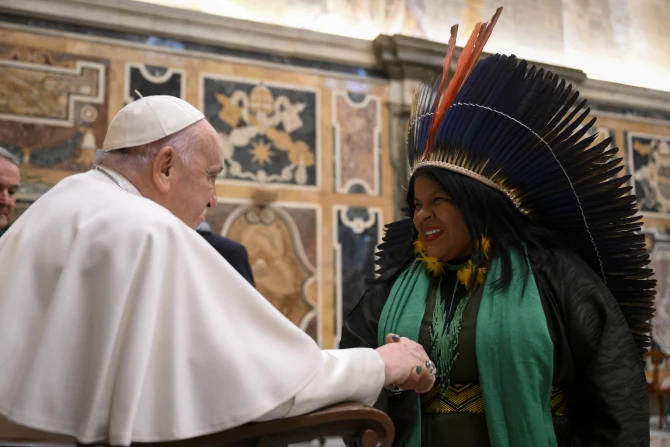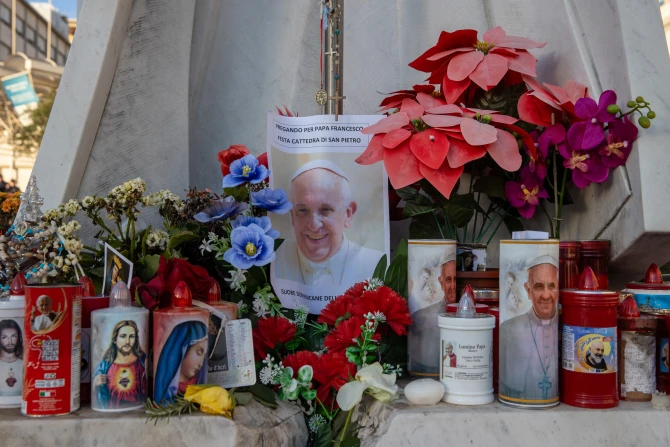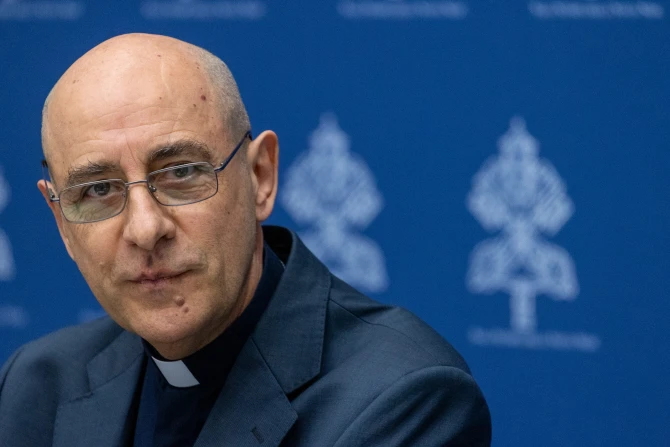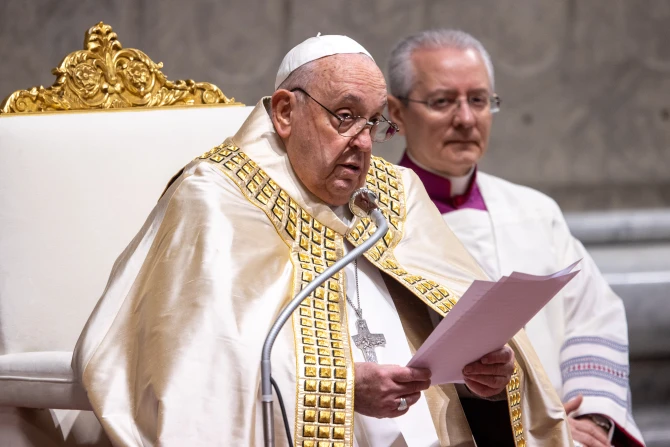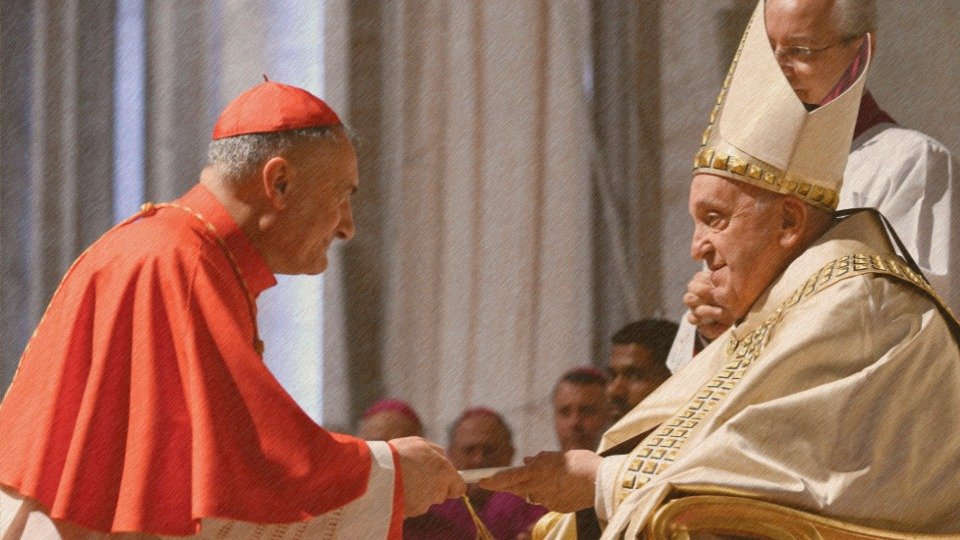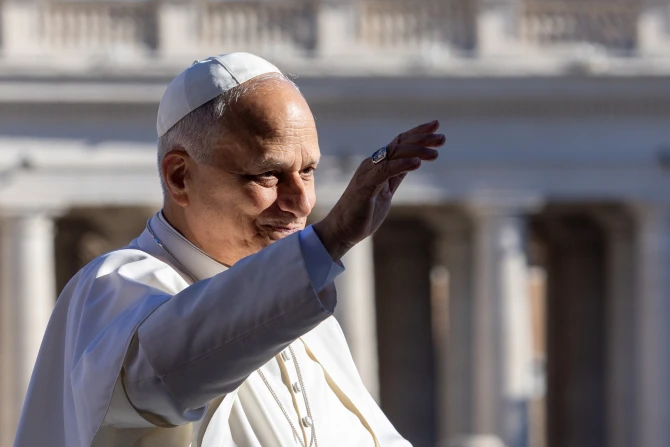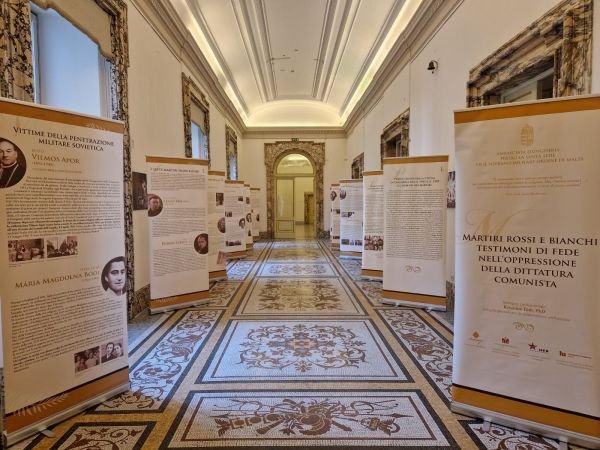Defending the rights of Indigenous people is a matter of justice and a way to guarantee a sustainable future for everyone, Pope Francis said in a message on Monday.
“Land, water, and food are not mere commodities but the very basis of life and the link between these [Indigenous] peoples and nature,” the pope said in a message to participants in the Seventh Global Meeting of the Indigenous Peoples’ Forum, taking place in Rome Feb. 10–11.
“Defending these rights,” he continued, “is not only a matter of justice but also a guarantee of a sustainable future for all.”
The International Fund for Agricultural Development (IFAD) is hosting the meeting in order to strengthen IFAD’s partnership with Indigenous peoples and its initiatives in their communities.
Pope Francis said the theme of the two-day gathering — “The Right of Indigenous Peoples to Self-Determination: A Path to Food Security and Food Sovereignty — “calls us to recognize the value of Indigenous peoples as well as the ancestral heritage of knowledge and practices that positively enrich the great human family, coloring it with the varied traits of their traditions.”
Ancestral heritage and traditions, he added, open up “a horizon of hope” in a challenging time.
The pontiff also emphasized that preservation of Indigenous culture and identity goes hand in hand with recognizing the value they bring to society and the importance of safeguarding their existence and the natural resources they need to live.
He closed his message by expressing a hope that people will work to ensure future generations also have access to a world “in keeping with the beauty and goodness that guided God’s hands in creating it.”
“I beseech Almighty God that these efforts may be fruitful and serve as an inspiration to the leaders of nations,” Francis said, “so that appropriate measures may be taken to ensure that the human family will walk together in the pursuit of the common good, so that no one will be excluded or left behind.”
This article was originally published on Catholic News Agency.

